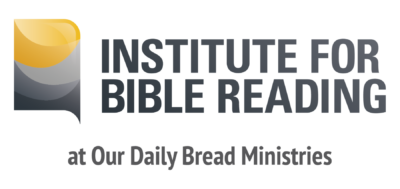3 Questions You Should Ask Whenever You Read the Bible
It’s true that the Bible is God’s inspired Word to us. It’s also true that the Bible didn’t simply fall from heaven typed out and leather-bound. In the same way that Jesus, the living Word of God, is fully human and fully divine, God chose to communicate his divine written Word through human channels.
This means that the holy writings of the Bible are fully and completely human words, written by authors in their natural languages and using common forms of writing, reflecting their ancient cultural and historical settings. In order to fully understand what the Bible is saying to us today, we have to understand the different levels of context around what we read. Here are three questions to keep in mind that will help you do that.
1. What would this have meant to the original audience?
While the Bible was written for us, it was not originally written to us. Reading the Bible through an Ancient Near East lens rather than our modern Western lens is the first step to understanding the Bible in context.
As we all know, ancient societies were very different from our modern Western societies. Social structures were different, political power structures were different, their understanding of science and technology were of course very different. It’s easy to bring our modern assumptions to the text, but in doing that we risk misinterpreting the text or missing the point completely.
Once we pass the Bible through the “filter” of what it meant for its first audience, only then can we gain wisdom and understanding for our lives today. As Gordon Fee and Douglas Stewart put it in their book How to Read the Bible for All It’s Worth, “A text can never mean what it never meant. Or to put that in a positive way, the true meaning of the biblical text for us is what God originally intended it to mean when it was first spoken. This is the starting point.”
2. What type of literature is this?
From prophetic oracles to song lyrics to letters the Bible contains a collection of different types of literature, each with their own function in the ancient world. People that received these kinds of writing understood that when they engaged with them, they were entering into an unspoken agreement with the author to treat it the way the author intended.
We do this all the time today without even thinking about it. If we pick up a newspaper, we understand that we will be reading factual accounts of world events until we turn to, say, the Opinion section or Comics page. When we receive a restaurant menu, we understand what we’re supposed to do with it. Same with a textbook, a recipe, etc.
It’s very important that we avoid reading the Bible flatly, as one type of literature. We need to learn what genre each book is and engage with it on the author’s terms. Some of the Bible’s genres are completely unfamiliar to us, like apocalyptic literature or prophetic oracles. Some are more familiar, like the poetry in the Psalms, but have traits like Hebrew parallelism that we don’t see today. The good news is there are tons of resources out there to help us understand the ins and outs of the Bible’s different literary genres. And once we have a better grasp of them we’ll be able to see the Bible in a whole new light.
3. Where does this passage take place within the Bible’s overall story?
The story of the Bible from Genesis to Revelation is the story of God restoring his creation to its original intention. God is the author of this story as well as the primary actor, hero, and Savior. Even when the story we’re reading doesn’t primarily feature God – it may be a story about David or Daniel or Paul – we have to ask ourselves what is God doing here? How is he acting through these people?
The Bible can also be thought of as a six-act drama. You can read more about the Bible’s six acts here. Whenever we read the Bible, we need to consider which “act” the story takes place within. There is a trajectory to the story as God brings his creation along, ushering it toward his final goal of redemption. The actions God takes and what he tells his people to do in Act 3 are very different from Act 5 because there is movement in the story. Reading with this storyline in mind is critical to understanding the Bible well.
~
Paying attention to these three levels of context — original interpretation, literature, and story — will put the Bible within the right framework to interpret it for ourselves today. If you’re interested in resources that will help you understand these different elements of context, leave a comment below and we will point you to some of our favorites.

